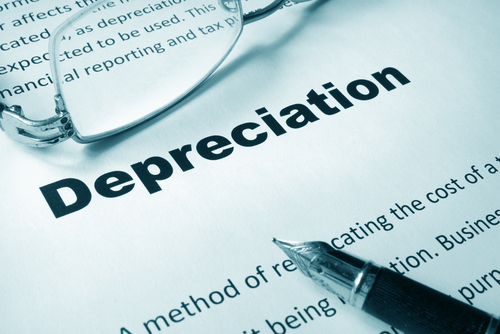Depreciable Property
Sep 05, 2022 By Triston Martin
You can depreciate the property if you purchase property to make money. You can deduct the cost of buying this business-related asset from your taxable income under IRC. You can't deduct all the costs of an asset at once, so you need to depreciate the certain property over time. Section 179 of IRC covers depreciation. These rules can be confusing, so it is worth learning them before you buy a capital asset in the hope that it will depreciate.
Understanding Depreciable Property
The IRS Publication 946 states that property must fulfill the following requirements to become depreciable.
- It must be your property.
- It should be used in your income-producing business.
- It must be able to last a long time.
- It should be expected that it will last more than one calendar year.
Property, plant, and equipment are both depreciable assets. However, certain intangible properties, such as patents, copyrights, and computer software, are also depreciable. IRS Publication 535 lists copyrights and patents as intangibles, which must be amortized rather than depreciated. Characterizing the intangibles' useful lives will determine whether they are amortized and depreciated. Businesses can sometimes choose to capitalize assets, taking an expense in a current tax year and forgoing future deductions, making it a non-depreciable asset. This is according to IRC section 179 rules.
How Depreciable Property Works
You can depreciate most properties using straight-line or accelerated methods, depending on the nature of the property. As the name implies, accelerated deduction allows for the largest tax deductions for assets in the first year or more of their class life. Straight-line amortization is the cost divided equally over the asset's class life years.
In both cases, depreciation begins when you put the asset into service. It doesn't necessarily mean you are using the asset by putting it in service. You might have it in a corner. It doesn't matter if it is in a box in the corner. You have it and could use it if desired.
It ends when the asset's life span is over or if the asset fails to perform in a particular way before it expires. The process would end if the asset was no longer used for income-earning and you began using it only for personal reasons. For example, if you took that $30,000 vehicle out of your taxi fleet and drove it yourself.
Example
Straight-line depreciation of buildings and improvements takes between 15-44 years and 5-15 years for equipment and machinery. The land is not considered depreciable. The company had $2.2 billion in depreciated expenses and $21.9 billion in accumulated deductions in the fiscal year 2017. None of the company's intangible assets were lost.

Common Depreciation Methods
Straight-line depreciation and accelerated are two common methods. Straight-line depreciation generates a constant expense each calendar year, while accelerated front-loads the expense early in the year. Although the reported net profits in earlier years will be lower, some companies opt for the accelerated method to protect more income from taxes. As less depreciation expense has been recorded, this will reverse in later years. After the property's useful lifespan, the cost base, useful life, and salvage value must all be the same. This is true regardless of the type of depreciation that was utilized.
Straight-Line Depreciation
The amount you paid for an asset multiplied by its class is not enough to deduct depreciation. This equation is more complex. Knowing the adjusted basis and salvage value of the property is necessary. After subtracting the adjusted basis, the salvage value is subtracted. The resulting number is your depreciation deduction. This figure will be divided over the class life of the property. The adjusted basis is usually the price you paid for the property, plus any costs incurred. This includes freight charges and sales tax.

Property That Isn't Depreciable
Depreciation can only be applied to property that is likely to lose its value over the course of time. If an asset can gain in value, it is not depreciable. This includes certain investments, such as stocks or bonds and collectibles. Although the land isn't subject to depreciation, buildings built on it or any improvements made to them might. Property that you only use for personal purposes is not subject to depreciation. You must use the asset to make money. If the inventory is held to sell, it can't be depreciated. Property in service retired or sold within the same calendar year cannot be depreciated.








